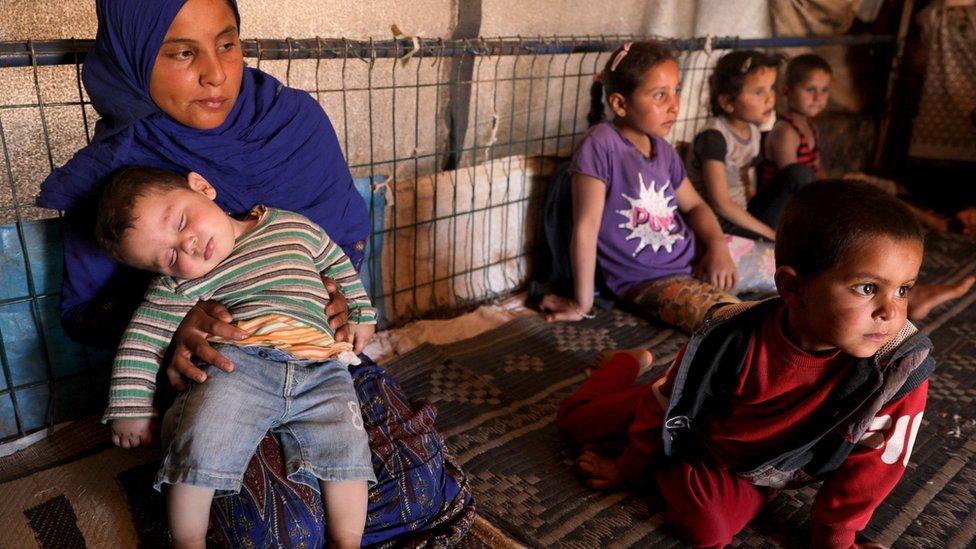Syria: Russia and China veto last-ditch aid extension deal
- Published

More than 11 million Syrians are reported to be in need of humanitarian aid and protection
Russia and China have vetoed at the UN Security Council a one-year extension to a deal allowing aid deliveries to north-western Syria via Turkey.
Up to now, food and other aid for millions of people have come through two crossing points to Aleppo province and to rebel-held Idlib.
A Belgian-German draft resolution was a last-ditch attempt to prolong the deal, which expires later on Friday.
Russia wants one crossing to be open, and a vote on this is now expected.
Moscow argues that aid for Syria should be channelled through its ally there, the government of President Bashar al-Assad.
But analysts say the government in Damascus has a record of restricting the flow of aid to areas in the hands of its opponents.
Last month, the head of the World Food Programme warned that Syria faced the risk of mass starvation or another mass exodus unless more aid money was made available.
David Beasley told the BBC a million Syrians faced severe food insecurity and some were already dying.
The war-torn country's currency has collapsed and food prices have soared.
In desperation, many Syrians might have no choice but to try to flee to Europe as they did in 2015, Mr Beasley said.
More than 380,000 people have been killed and 13.2 million others - half the pre-war population - have been displaced inside and outside Syria since an uprising against President Bashar al-Assad began in 2011.
Some 6.6 million refugees are scattered throughout the world, the vast majority of them in Turkey, Lebanon, Jordan, Iraq and Egypt, where the impact of the Covid-19 pandemic has wrought havoc on economies.
The UN and its partners have appealed for $3.8bn (£3.08bn) for humanitarian work inside Syria and another $6.04bn to help countries in the region hosting Syrian refugees. The appeals are currently 30% and 19% funded respectively.
The UN High Commissioner for Refugees, Filippo Grandi, has warned that the Covid-19 crisis has had an immediate and devastating impact on the livelihoods of millions of Syrian refugees and their host countries, external, where there have been sharp economic downturns and poverty has spiralled.